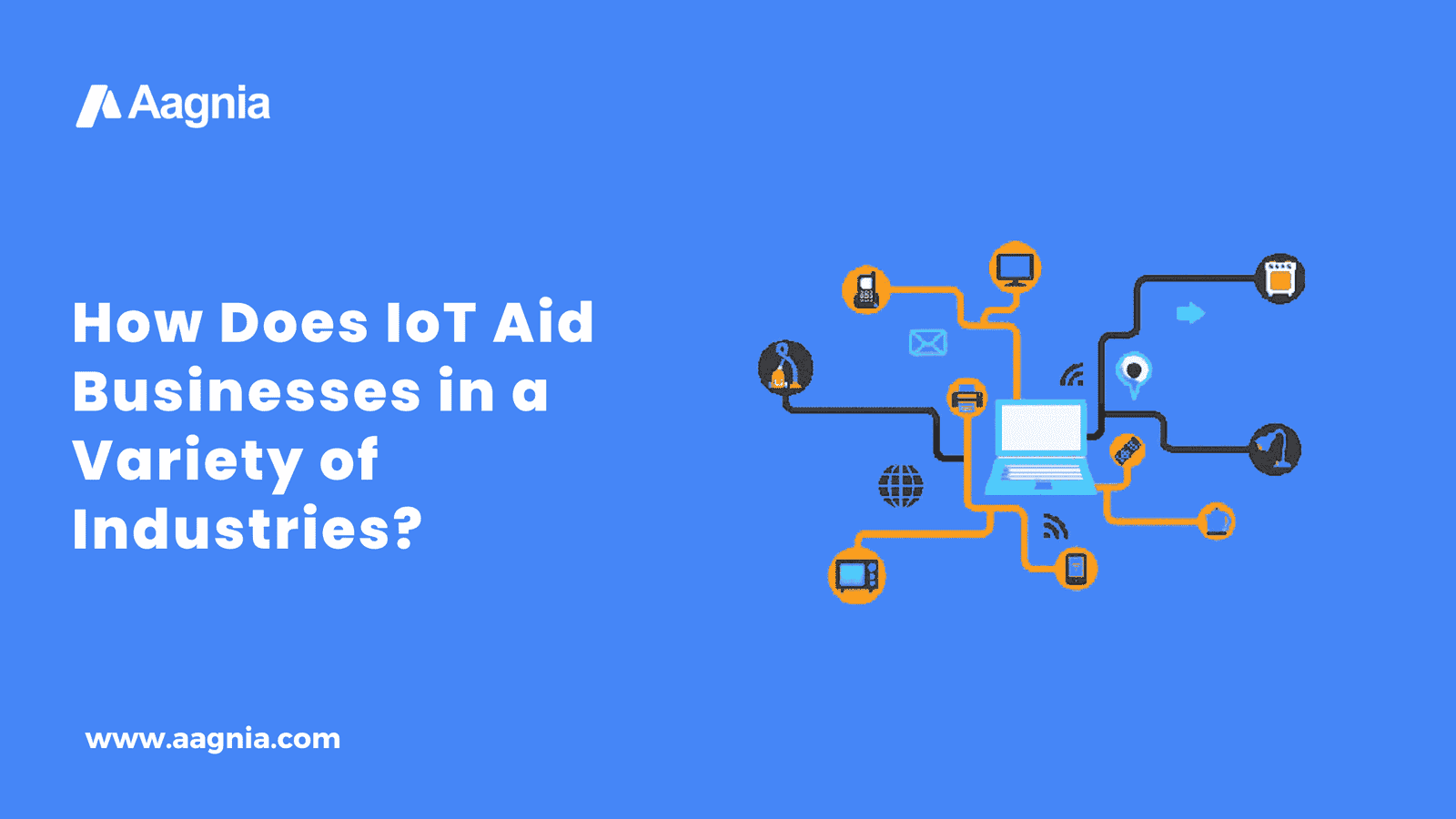
How Does IoT Aid Businesses in a Variety of Industries?
IoT technology is assisting businesses in collecting and analyzing more data in order to provide a better customer experience. There are several other applications. Here are some examples of how IoT is enhancing various industries:
Manufacturing and industrial production:
The manufacturing industry has changed dramatically as a result of IoT and automation. Smart sensors boost productivity and decrease downtime by offering the following solutions:
Industrial robots powered by IoT cut down on losses caused by human error. Furthermore, robots can work continuously. They boost output while also assisting manufacturers in lowering operational costs.
Autonomous units can be remotely controlled to work on assembly lines for a variety of products. IoT, or the Internet of Robotic Things (IoRT), is being used to manufacture electronics, automobile parts, toys, and even airplanes Worldwide.
Predictive maintenance:
IoT sensors continuously monitor the health of equipment. Data collected through IoT aids in the creation of periodic maintenance schedules that have the least impact on the continuity of production lines.
Furthermore, the data allows operators to anticipate maintenance needs. For optimized maintenance schedules, IoT sensors predict the likelihood of equipment failure. Such predictive forecasts mitigate the impact of a breakdown on active production hours.
Connected sensors are used in large factories to automate maintenance schedules. Consider Volvo, which uses IoT to monitor equipment defects and predict maintenance schedules. As a result, diagnostic time is reduced by 70% and repair time is reduced by 20%.
Logistics and supply chain:
Logistics and supply chains have always been capital-intensive industries with numerous bottlenecks. Customers expect dependability, and businesses are constantly expected to be more transparent. IoT assists companies in achieving both objectives.
improved tracking systems:
Buyers want to know everything about their packages from when they place an order. To delight and engage customers, IoT-based solutions provide detailed insights about the parcel’s environment.
Parcel Live is utilizing IoT to provide real-time information about the condition of a parcel. Suppliers and shippers can provide excellent customer service and timely dispute resolution.
IoT sensors are invaluable when delivering high-value goods, perishables, or temperature-sensitive products like vaccines, providing critical information on factors such as humidity, temperature, and so on.
On-demand pickup and delivery:
Customers appreciate the convenience, especially when it alleviates a vexing problem.
Smart pick-up points improve e-commerce logistics and delivery operations. Companies, for example, can deliver products using an IoT-connected network of smart lockers. Smart lockers are internet-connected and alert customers when a package arrives.
We made parcel delivery easier for customers working in large offices in one of our IoT projects, Collectomate. Customers use a mobile app to access their locker at a time that is convenient for them. They don’t have to miss important meetings or worry about missing their delivery if they can’t pick up the parcel from the courier.
IoT is used by Collectomate for smart deliveries and to simplify parcel pickup in large offices. Learn how Collectomate is making parcel delivery easier in large offices.
Optimization of mileage and vehicle routes:
Fleet management systems powered by IoT enable administrators to reduce operational costs by optimizing routes. Companies can use driver behavior, fuel efficiency, and maintenance prediction to create the best delivery routes for cost-effective deliveries.
Analytics and tracking reduce costs while tracking issues such as employee personal vehicle use.
Healthcare:
IoT is being used by hospitals and doctors for patient monitoring and preventive healthcare. The Internet of Things can be used to make informed decisions during diagnostic and treatment cycles.
Remote Monitoring:
IoT solutions can monitor vital health data such as blood sugar levels, heart rate, blood pressure, and so on. Doctors receive detailed information about a patient’s health via devices equipped with smart sensors.
Healthcare workers use technology to keep a real-time eye on patients.
The next generation of Internet of Things devices is assisting the telemedicine industry. Tele-ICU solutions, for example, can generate precise clinical predictions. Algorithms analyze data collected through IoT and predict when a patient will require emergency medical attention.
Media production:
IoT is also useful in creative industries such as media and production. The Internet of Things has the potential to make the manufacturing environment more efficient and dynamic.
On-set environment automation:
Lighting for video production is a complicated and nuanced process. The Internet of Things can improve light adjustment and allow gaffers to control lighting fixtures via mobile devices.
Lighticians Apollo Control uses DMX to connect to all lighting fixtures. Lighting professionals and amateurs alike can quickly set up scenes and define minute lighting details.
Call us at +91 75400 07581 to learn more about our IoT solutions for manufacturers or schedule a consultation online.
We can assist you in connecting your devices to a customized mobile application.

Join our news Letter
- Revolutionizing Parking Management A Real-Time Example
- The Importance of Regular Application Maintenance
- Logistics Software Solutions and Software Development
- Software Development Services for SMEs
- How Does IoT Aid Businesses in a Variety of Industries
- But what exactly is IoT – What does it mean for manufacturers – How can you use IoT to improve your business
- How to outsource custom software development Services
- 5 Reasons Why You Need To Outsource Software Development
- Why You Need A Cloud Strategy
- The Cloud Is Changing Everything, Here’s How To Make It Work For Your Business

